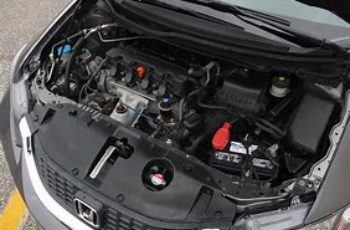The Rise of Electric Cars in Nigeria. It was a golden morning in Lagos. The city buzzed with its usual life—hawkers calling out, buses honking their way through traffic, and the ever-present hum of generators grinding in the background. But something had changed on Bayo’s street. Instead of the choking fumes of petrol and diesel engines, there was a strange silence, broken only by birdsong and the gentle hum of… well, something new.
Bayo had just bought his first electric car.
His neighbors thought he was either rich or mad. “You go charge am with NEPA?” one of them scoffed. But Bayo only smiled. He had done his homework. In a country blessed with abundant sunlight, rising fuel prices, and congested cities, Bayo saw not just a car—but the future.
A New Kind of Freedom
The first advantage Bayo noticed was the cost. Fuel prices in Nigeria are notoriously unstable. One week it’s ₦620 per litre, the next it’s pushing ₦800. But with his electric car, Bayo spent only a fraction on charging. He had even installed a small solar panel system at home, which meant that most of his “fuel” came free from the sky. No more visits to the petrol station, no more haggling with fuel attendants, and definitely no more black market jerry cans.
Plus, electric cars have fewer moving parts. Unlike combustion engines, they don’t need oil changes, spark plugs, or gearboxes. Bayo’s maintenance costs dropped like a stone. His mechanic, Musa, started missing him—and his money.
Clean Air, Quiet Streets
On the road, Bayo noticed something else. His car was quiet—almost too quiet. No rumbling, no vibrations, just smooth, effortless motion. And without emissions, he wasn’t just saving money—he was saving lungs. In cities like Lagos, Port Harcourt, and Kano, air pollution is a serious problem, with thousands of premature deaths linked to vehicle exhaust.
Imagine a future where the air is clean, the skies are clearer, and our children don’t grow up coughing into handkerchiefs. Electric cars make that future possible.
Performance and Power
At first, Bayo worried electric cars might be slow or weak. But he was wrong. His car had instant torque. From zero to sixty, it moved like a cheetah on caffeine. In traffic, he could dart in and out with ease. And on long drives to Ibadan or Abeokuta, he enjoyed the smooth, steady acceleration that petrol cars could only dream of.
Plus, electric vehicles (EVs) often come with smart technology—touchscreens, autopilot features, remote diagnostics, and real-time navigation. It wasn’t just a car; it was a computer on wheels.
Comparison: Electric vs Gasoline Cars
| Feature | Electric Cars | Gasoline Cars |
| Fuel Cost | Low (especially with solar) | High and rising |
| Maintenance | Minimal (no oil changes, fewer parts) | Frequent and costly |
| Pollution | Zero tailpipe emissions | High carbon and toxic emissions |
| Noise | Nearly silent | Loud engine noise |
| Performance | Instant torque, smoother drive | Delayed acceleration |
| Technology | Advanced features standard | Often basic unless premium model |
| Fuel Availability | Growing, can use home charging | Widely available but inconsistent pricing |
| Environmental Impact | Low (especially if powered by renewable energy) | High carbon footprint |
Challenges—and Hope
Of course, Nigeria isn’t without its challenges. Electricity supply can be unreliable, and charging stations are still few and far between. But just like mobile phones leapfrogged landlines, EVs can leapfrog outdated infrastructure. Imagine solar-powered community charging hubs. Imagine using Nigeria’s vast sun and wind to power a clean transportation system.
And it’s already starting. Companies like Stallion, Jet Systems, and Max.ng are introducing electric buses, bikes, and cars to Nigerian roads. Universities are studying solar-powered charging systems. The Nigerian government is beginning to explore policies that support EV adoption.
A Call to the Future
As Bayo’s car slid silently past a long queue of sweating drivers at a petrol station, a young boy pointed and asked, “Daddy, why that car no dey make noise?”
“Because it’s from the future,” the man replied with a chuckle.
And he was right.
Electric cars are not just about saving money or staying trendy. They’re about cleaner air, a healthier environment, energy independence, and embracing innovation. For Nigeria, they offer a chance to lead, not follow—a chance to rewrite the story of transportation.
We’ve relied on oil for decades. It built cities and boosted economies. But now, the world is changing. And Nigeria—bold, bright, and bursting with potential—can change too.
Ready to Drive the Change?
If you’re tired of rising fuel prices, heavy maintenance bills, and polluted city air, it’s time to consider switching to electric. Learn more, test-drive an EV, or explore how solar energy can power your ride. The road ahead is electric—and it’s wide open.
check www.poundsbusiness.com
Be part of Nigeria’s cleaner, smarter future. Drive electric. Drive the change.



